Coup Ousts Iraqi King
July 14, 1958 Iraqi army officers stage a coup and overthrow and kill King Faisal. Also killed is Iraq’s crown prince, whose body is left hanging outside the Defense Ministry. Iraqis celebrate, but Western powers…
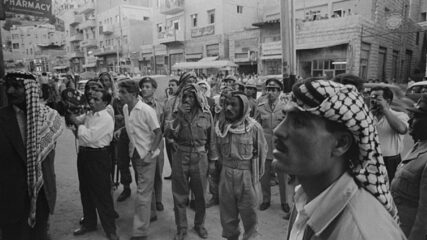
July 14, 1958 Iraqi army officers stage a coup and overthrow and kill King Faisal. Also killed is Iraq’s crown prince, whose body is left hanging outside the Defense Ministry. Iraqis celebrate, but Western powers…

January 30, 1958 At a meeting in Ankara, Turkey, U.S. Secretary of State John Foster Dulles tells Baghdad Pact states that the United States is committed to assisting their defense programs. This statement is seen…

In a nationally televised address to the American people, President Dwight Eisenhower discusses the tense situation in the Middle East in the aftermath of the October 1956 Suez War.
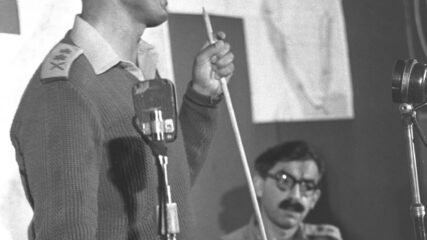
The Knesset debates Prime Minister David Ben-Gurion’s announcement that Israeli troops would withdraw from Sinai following the 1956 Suez War.
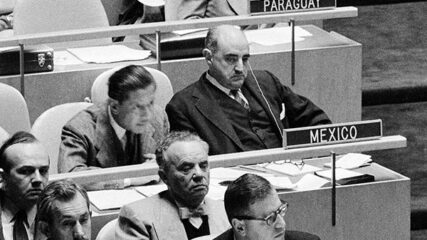
January 25, 1956 Abba Eban, Israel’s ambassador to the United States, and John Foster Dulles, the U.S. secretary of state, discuss a proposal for the United States to sell Israel $50 million worth of weapons…

August 26, 1955 Secretary of State John Foster Dulles delivers a speech to the Council on Foreign Relations that points to the Eisenhower administration’s new plan to launch covert discussions between Israeli Prime Minister David…

May 11, 1953 U.S. Secretary of State John Foster Dulles arrives in Cairo at the start of a 2½-week fact-finding trip to Egypt, Israel, Jordan, Syria, Lebanon, Iraq, India, Pakistan, Turkey and Libya. Dulles emphasizes…
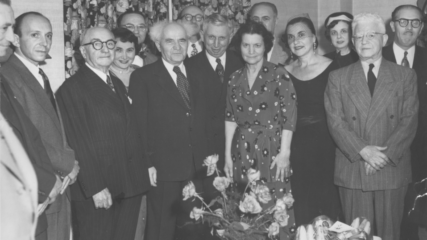
Ben-Gurion’s trip, the first visit by an Israeli Prime Minister to the US, includes a tour of hydroelectric and water projects in Tennessee and Alabama.
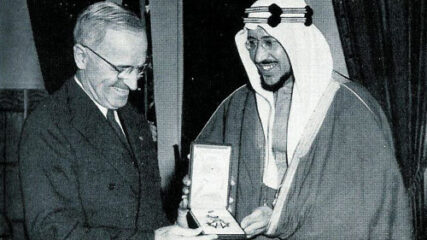
Shaikh Yusuf Yassin, Saudi Arabia’s Deputy Foreign Minister, states that “Arab states would never agree to any working relationship with Israel.”
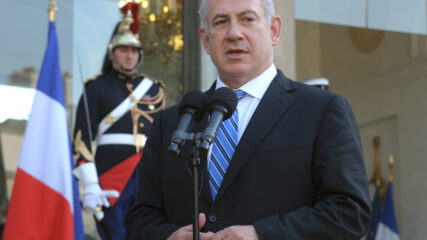
Benjamin Netanyahu, the ninth and current Prime Minister of Israel, is born in Tel Aviv. Although he spends a good portion of his childhood in Philadelphia, Netanyahu returns to Israel in 1967 to fulfill his service in the IDF.
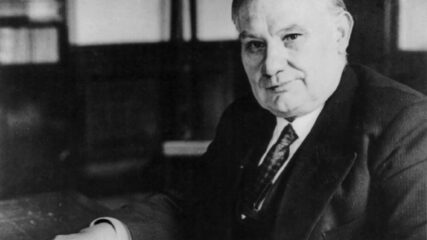
In a cable to the State Department, US Chargé d’affaires Julius Holmes recounts British Foreign Secretary Ernest Bevin’s concerns that “within five years, Israel may be a Communist state.”
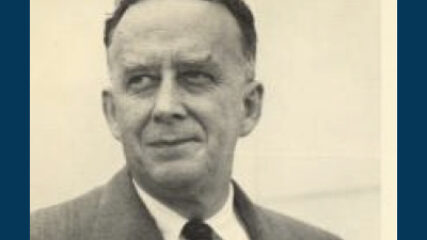
The US rejects a UN request that US Marines be temporarily stationed in Jerusalem to support an Israeli-Arab military truce agreement. The US continues its policy of supporting diplomacy in the region, while maintaining politically-strategic, military distance.
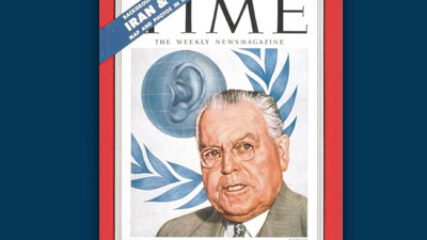
Shortly after Israel declared its independence from the British, on May 14, 1948, the US sent a memorandum to the UN that indicated its acceptance of the new state and the direction of its future policy in the Middle East.
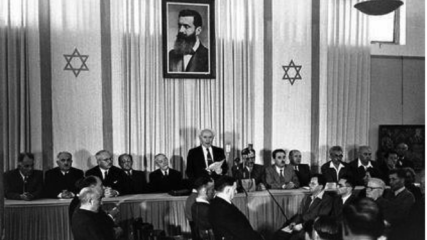
On Friday afternoon in the Tel Aviv Museum, David Ben-Gurion, chairman of the Provisional State Council, declares Israel’s independence. The United States is the first country to recognize the new and already besieged state of Israel.
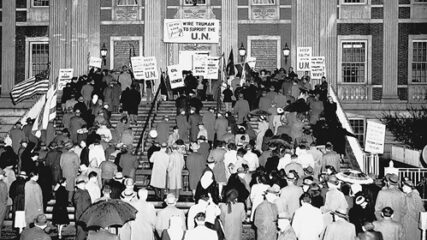
The United States was deeply worried that supporting the establishment of a Jewish state would jeopardize Arab oil supplies and force the US to send troops, risking a confrontation with the USSR.
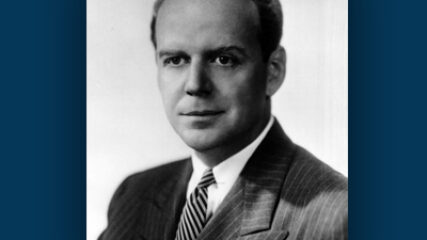
Clark Clifford did not want the US to waiver from the partition resolution passed at the UN in November 1947, which called for the division of Palestine into Arab and Jewish states.
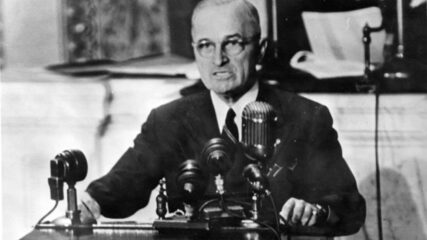
In a speech delivered to a joint session of Congress, President Harry Truman outlines a new, decidedly anti-Soviet direction for American foreign policy.
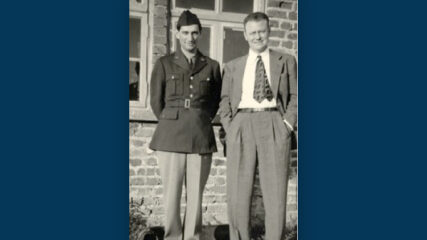
The Harrison Report, an inquiry into the conditions of displaced persons camps in occupied Germany, reveals that many of the rumors of poor treatment of Jews are indeed true and that “we appear to be treating the Jews as the Nazis treated them, except that we do not exterminate them.”
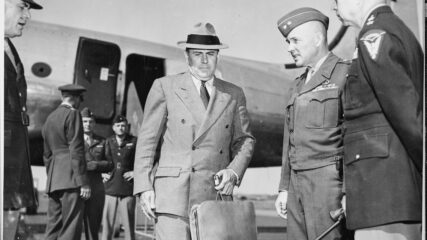
In a letter written to Leon Kubowitzki, head of the Rescue Department of the World Jewish Congress, US Assistant Secretary of War John J. McCloy states that the War Department would not order the bombing of Nazi Death Camps because they did not see it as a priority for US military resources.
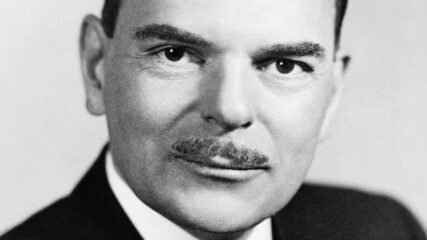
At the 1944 Republican Party National Convention, New York Senator Thomas Dewey’s strong support for the establishment of a Jewish state in Palestine captures the attention of Zionists in Palestine and, more notably, American Jewry.
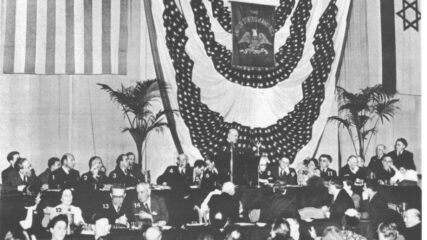
The Biltmore Conference will set the framework for Zionist policy in the years during and after World War II.
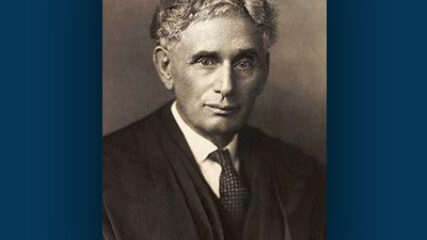
Louis Brandeis, retired United States Supreme Court Justice and celebrated American Zionist, passes away in Washington DC at the age of 84.
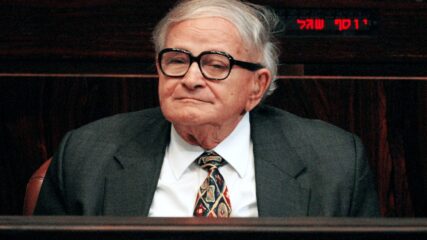
November 23, 1926 Rafi Eitan, whose intelligence career ranges from the high of capturing Adolf Eichmann in Argentina to the low of handling U.S. Navy analyst Jonathan Pollard as a spy, is born on a…
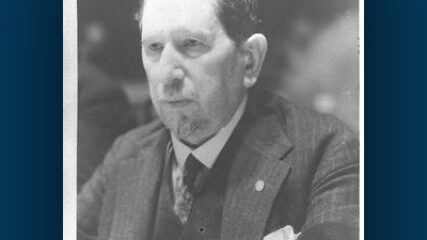
Nahum Sokolow, serving as President of the Executive Committee of the World Zionist Congress, meets with President Warren Harding in Washington, D.C.